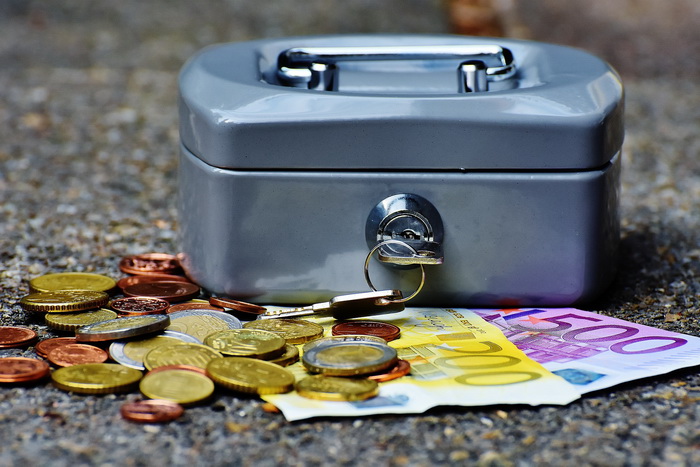From currency on the global Forex market to digital cryptocurrency and shares on the world’s Stock Exchanges, there are many assets you can choose to trade now. Trading is easier than ever in our digital age as online brokers and low starting capital has reduced the entry barrier for normal people. All you need is some starting cash, a PC and an internet connection! This has seen many people decide to move into trading on the financial markets in order to make decent returns on the money they risk.
When you first dip your toes into the vast ocean of trading, the waves of information can be overwhelming. But, diving headfirst without adequate preparation? That’s a recipe for disaster. Just like how a soldier wouldn’t head to battle without the right armor, traders shouldn’t venture into the market ill-equipped.
Financial planning tips are essential. They’re the foundation upon which successful trading careers are built. The market isn’t just numbers and charts; it’s a dynamic entity influenced by global events, politics, and countless other factors. A well-prepared trader doesn’t just know the basics. They’re also in tune with current events, ensuring they’re not caught off-guard by sudden market shifts.
Moreover, being prepared helps in risk management. Unforeseen market downturns? They’re part and parcel of the trading world. But with proper research, one can minimize their impact. Preparedness means you’ve analyzed different scenarios and have contingency plans in place.
10 – Set Up A Space To Trade From
One reason more and more people are choosing to trade now is the chance it gives them to make money from home. Whether you do it on the side on top of a normal job or trade full-time from home, it is key to have everything in place to make it work. One of the most important things is to set up a dedicated space in your house where you will trade from. This should be somewhere with enough room to fit your computer, a desk and a comfy chair as well as being away from any distractions. Setting up a space like this will help you take trading more seriously and have the peace needed to make rational decisions.
09 – Handle Your Emotions
Another top tip for new traders on the global financial markets is to keep control of your emotions. Whether you trade crypto, Forex or stock markets, this is very important. Getting too down about a losing trade or too hyped about a winning one can often lead to making rash decisions in the short-term. Whatever the outcome of your last trade, try to remain calm and simply go about future trades in the same way as before. You should certainly not jump back into the market based on a purely emotional reaction!
08 – Decide How You Will Trade
Although trading the financial markets may seem like one general thing, there are a few ways you can approach it. You could for example be a short-term day trader who opens positions in the morning and then closes them each night, regardless of the outcome. On the other hand, you may prefer a longer-term approach which sees you open trades for weeks or even months. The key is to pick a trading style that you find easy to execute, fun and suited to your own personality.

07 – Don’t Switch Strategies Too Often
As well as the style you will use to trade, you will also need a strategy to find opportunities and identify which ones are worth taking. There are many, many trading strategies for all the major markets – a search online will give you lots to consider. A good tip is to stick with one strategy for a decent amount of time, rather than changing every time you lose a trade or have a poor run. To get the edge a good strategy will bring, you have to give it time to play out. It is usually best to run a strategy for at least 1 month before reviewing the results it has produced. Naturally, if every trade for that period lost, you would then be perfectly within your rights to try another.
06 – Keep Up To Date With The Financial News
All financial markets move on the news – be it shares, bonds, currency or crypto. Breaking stories around one countries economy or business sector can lead to financial markets reacting in turn. As a trader, it is key to understand this so you can factor in how the latest news could affect your open positions or the opportunities which may come along. It is therefore highly advised to check the financial and market news at least once each day. With online news sites, 24-hour TV sites and mobile news apps, it has never been easier.
05 – Think About Money Management and Risk
The classic mistake most new traders make is to focus all their efforts onto making money. While this is obviously important, you should also pay great attention to keeping the money you already have. Doing this will mean you stay in the trading game and have money to open future positions up with. A good way to go about proper money management is only risking a certain amount on any one trade. This means you will not be wiped out if it does not work out as planned. Usually, traders will allocate a small percentage of their overall capital to each trade – such as 2%.
04 – Choose Your Broker Carefully
There are many online brokers you can sign-up with to trade stock, crypto, indices and FX with now. Even a brief look on the internet will throw up lots to consider! Do not make the mistake of jumping into bed with the first you see though or the one with the flashiest website. As you will be trusting your money and personal details with the broker, you must look into them further first. You need to make sure they are regulated, offer good customer support, have a decent reputation for fairness and use the latest cyber-security tech on their platform. If this is in place and the also offer a good range of assets to trade and quick withdrawals, then you can be more confident of using them.

03 – Use Stop/Losses
Many new traders do not know about stop/losses or consider them worth using. This is a massive mistake! Stop/losses allow you to set the price at which an open trade will automatically close – for when it is profit and in loss. This is very handy for locking in profit when your trade hits your pre-defined upper limit or cutting your losses short if a trade looks like it is heading south. As a lot of the major financial markets operate on a 24-hour basis, stop/losses mean you do not get caught out by overnight price movements which you are not around to manage. They also help if you trade part-time and can’t monitor your trades in the daytime.
02 – Learn The Basics – And Keep Learning!
Of course, one of the best things any new trader can do is learn the basics of the market they will be operating in. There is not much point for example trading FX if you do not know how to read a chart or what currency pairs are! Take the time before you start trading to learn how the market you will operate in works, what the common terminology is, how to analyze charts and how to use chart indicators. Once you have got this down and start trading, keep taking more knowledge in to improve as a trader over time.
01 – Write Out a Trading Plan
Perhaps THE best tip for any new trader on the world’s financial markets is to write out a trading plan. This will help you to trade in a rational manner and to a set strategy. Over time, trading in this fashion should give you the edge needed to succeed. A good trading plan should cover key elements like what strategy you will use to spot opportunities, how much you will risk per trade, which assets you are interested in and so on. You should not only have it with you for reference each time you trade but also remember to follow it!
If you are thinking of making trading the global financial markets a career or simply trading for extra money, the above tips will help you get started. It must also be mentioned that trading naturally involves risk and nothing can ever be guaranteed in terms of success. If you follow the above tips however and find a strategy that works, you may well be one of the many traders out there who enjoy great rewards.
Developing a Trading Strategy
Trading without a strategy is akin to navigating unfamiliar terrain blindfolded. You might make some progress, but chances are, you’ll get lost. That’s why the foundation of any trader’s journey should be developing a robust trading strategy.
Your strategy acts as your compass. It guides your decisions, helping you discern when to buy, hold, or sell. But it’s not static. The beauty of a trading strategy lies in its adaptability. Markets evolve, and so should your approach. Regularly reviewing and fine-tuning your strategy ensures it remains relevant.
Choosing the best trading platforms for beginners also plays a crucial role. They offer tools, insights, and analytics that can be pivotal in shaping your strategy. Remember, a strategy isn’t just about maximizing profits; it’s about consistent growth and minimizing losses.
Emotional Tides: Navigating the Impact of Feelings in Trades
The trading world is not just charts, graphs, and numbers. At its core, it’s a human endeavor, and where there are humans, emotions are sure to follow. Recognizing the sway of emotions is a game-changer in the trading realm.
It starts with excitement. That first-time investment, watching the numbers, hoping for gains. But then comes the fear of loss, the anxiety of a market downturn, or the euphoria of a profitable trade. These feelings, if unchecked, can cloud judgment. The fear of missing out might push someone to make hasty decisions, while a winning streak might breed overconfidence.
But it’s not all doom and gloom. Emotions can also be a trader’s ally. The satisfaction of a well-executed trade, the thrill of overcoming market volatility, or even the gut feeling that a certain stock is about to soar. By acknowledging emotions, one can harness them, ensuring they act as motivators rather than deterrents.
One vital tip for new traders is to maintain a trading journal. Documenting feelings, decisions, and outcomes provides clarity. It allows traders to understand patterns in their behavior, helping in making more informed decisions in future trades.


